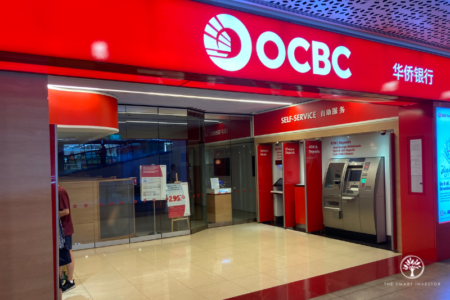REIT investors faced a turbulent year in 2022 as the asset class was hit by a combination of high inflation and rising interest rates.
Sentiment remained weak with the unit prices of popular REITs such as Mapletree Logistics Trust (SGX: M44U) and Parkway Life REIT (SGX: C2PU) touching a 52-week low.
Despite the dour sentiment, REITs have done an admirable job of paying out steady, predictable dividends to income-seeking investors.
However, investors need to remain vigilant.
With a bumpy path ahead amid economic uncertainties and elevated costs, REITs could see their distribution per unit (DPU) come under pressure.
Here are three red flags that could indicate a potential DPU decline.
A decline in portfolio valuation
All REITs revalue their property portfolios once a year when their fiscal year-end arrives.
Property valuation is performed by independent real estate valuation companies based on factors such as discount and capitalisation rates as well as occupancy rates and prospects.
REITs could see their properties being revalued downwards if property fundamentals weaken or occupancy rates decline.
A recent example is Manulife US REIT (SGX: BTOU), or MUST.
The US commercial REIT reported that its portfolio’s valuation had declined by 10.9% year on year from US$2.18 billion in 2021 to S$1.95 billion as of the end of 2022.
The reasons were varied – MUST disclosed that higher discount rates were used to value properties that reflected heightened risks at both the macroeconomic and property levels.
Certain properties also saw weaker occupational performance because of slowdowns in demand and leasing activity.
As a result of the reduced valuations, MUST’s aggregate leverage will hit approximately 49%, just below the maximum threshold of 50% set by the Monetary Authority of Singapore.
While the REIT manager assures investors that no financial covenants have been breached, the REIT must find ways to reduce its aggregate leverage.
Some methods may involve the sale of assets to generate cash that can pay down some of its loans, which will ultimately lead to a decline in DPU.
Currency weakness
Currency movements may also present a challenge for REITs that derive rental income in foreign currencies.
As DPU is paid out in Singapore dollars (SGD), the translation of rental income from a foreign currency to SGD may be impacted by currency weakness.
An example is Daiwa House Logistics Trust (SGX: DHLU), or DHLT, which owns a portfolio of 14 logistics properties across Japan.
For the first nine months of 2022 (9M2022), DHLT reported that actual net property income (NPI) was 6.3% lower at S$41.8 million compared with its forecast of S$44.6 million.
The difference was due to foreign exchange volatility, as the Japanese Yen (JPY) had declined by 15% against the SGD in the past year.
A similar situation can be found in Elite Commercial REIT (SGX: MXNU).
The UK commercial REIT reported a DPU of £0.0379 for 9M2022, down 7.8% year on year.
With the roughly 12% depreciation of the British Pound against the SGD in the past year, the DPU when translated to SGD will be further negatively impacted.
A rise in finance costs
With interest rates shooting up, REIT investors should also keep an eye on the all-in financing cost for the REITs that they own.
Should the cost of debt continue rising, higher finance expenses could signal lower future distributable income.
For Mapletree Industrial Trust (SGX: ME8U), its funding cost rose from 2.5% as of 30 June last year to 2.9% as of 30 September.
The higher cost of debt could be a precursor for the REIT to report lower year on year DPU in future quarters.
Suntec REIT (SGX: T82U) reported a 5.8% year on year fall in distributable income for its fiscal 2022’s third quarter (3Q2022) and a 6.6% year on year dip in DPU due, in part, to higher finance costs.
The retail cum commercial REIT’s all-in financing cost rose from 2.51% as of 30 June to 2.76% as of 30 September.
Get Smart: Keep the faith
Some REITs may see their DPU come under pressure in the coming quarters.
But all is not lost.
Well-managed REITs with strong sponsors can help mitigate the DPU decline through acquisitions, organic growth and asset enhancement initiatives.
2023 may turn out to be a rocky year, but if a REIT owns high-quality assets, it should turn out fine in the long run.
Is it a good time to buy into Singapore REITs? If you’ve thought about it, then our latest REITs guide will be an essential read. This exclusive pdf report shows you why REITs are still excellent assets, what sectors to look out for and how to find good REITs today. The info inside can help you build a solid retirement portfolio. Click here to download it for FREE.
Follow us on Facebook and Telegram for the latest investing news and analyses!
Disclaimer: Royston Yang owns shares of Mapletree Industrial Trust and Suntec REIT.




